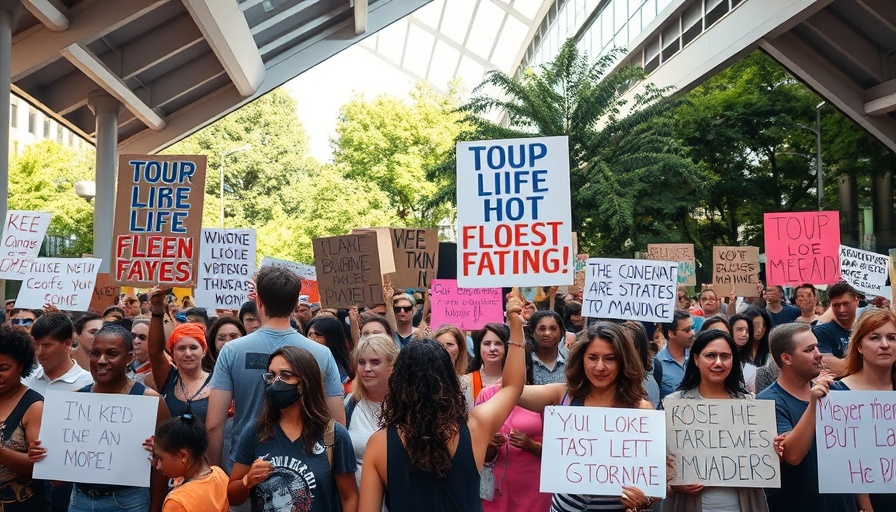
Understanding the Crisis: Immigrant Children at Risk
Imagine a young child, barely able to grasp the complexities of their surroundings, thrust into a courtroom to face a seasoned government lawyer. This distressing scenario is not fictional; it occurs daily across America, particularly in Texas, which bears the highest number of unaccompanied immigrant children. As these vulnerable kids navigate a labyrinthine legal process without adequate representation, the stakes could not be higher: their safety, future, and sense of belonging hang in the balance.
The Legislative Indifference to Child Welfare
In recent years, Republican lawmakers have pushed an agenda that appears to disregard the welfare of these children. Federal proposals allocating extensive funds to enhance immigration enforcement, all while simultaneously obstructing financial support for legal representation, highlight a troubling trend. Reports indicate that during the most recent fiscal year, approximately 13,000 unaccompanied minors found their way to Texas, many facing terrifying circumstances without anyone to advocate for them.
Personal Stories Matter: A Child’s Perspective
For many of these children, the trauma is compounded by their inability to communicate effectively in English or articulate past abuses they have endured. Imagine a teenage survivor of violence, paralyzed by fear in a courtroom, fearing deportation instead of finding refuge. These stories of real children underscore the flaws in policy decisions made by those in power.
A Dangerous Agenda: Legal Protections Under Attack
Republican Congress members have not just neglected the financial support for these children; they are actively pursuing dismantling critical protections that ensure humane treatment in detention. New legislative attempts to end a federal settlement agreement that guarantees safe conditions for detained minors represents a step backward. As these protections erode, children are increasingly vulnerable to harsh treatment, indefinite detention, and insufficient legal support.
Advocacy and the Road Ahead
The cancellation of a $200 million federally funded contract for the Acacia Center for Justice, which provided legal representation for thousands of children, is particularly alarming. When support systems collapse, as illustrated by the disbanding of this essential contract, children are left with no means to defend themselves in court. Advocates warn that speeding up immigration cases while stripping away legal aid only intensifies the trauma these children experience, stripping them of their agency in a system designed to protect them.
Community Engagement: The Role of Citizens
As citizens, communities can play a critical role in advocating for the rights and safety of unaccompanied immigrant children. Educational initiatives to raise awareness about the challenges these kids face and support networks providing shelter and legal guidance can make a tangible difference. When communities unite to support these vulnerable populations, they directly counteract legislative attempts that prioritize enforcement over empathy.
In conclusion, the treatment of unaccompanied immigrant children reveals a stark contrast between political rhetoric and action. As we collectively reflect on policies that jeopardize the safety and well-being of children, it's imperative to advocate for changes that prioritize their rights and humane treatment. By standing together, we can help ensure that these vulnerable young individuals receive the protection they need.
 Add Row
Add Row  Add
Add 




Write A Comment